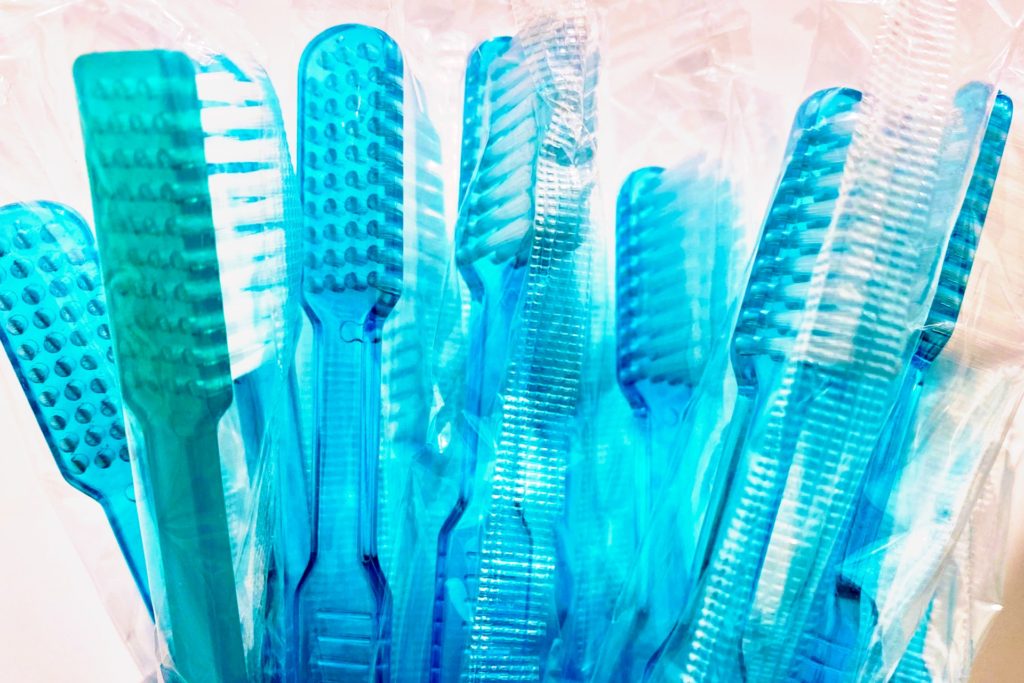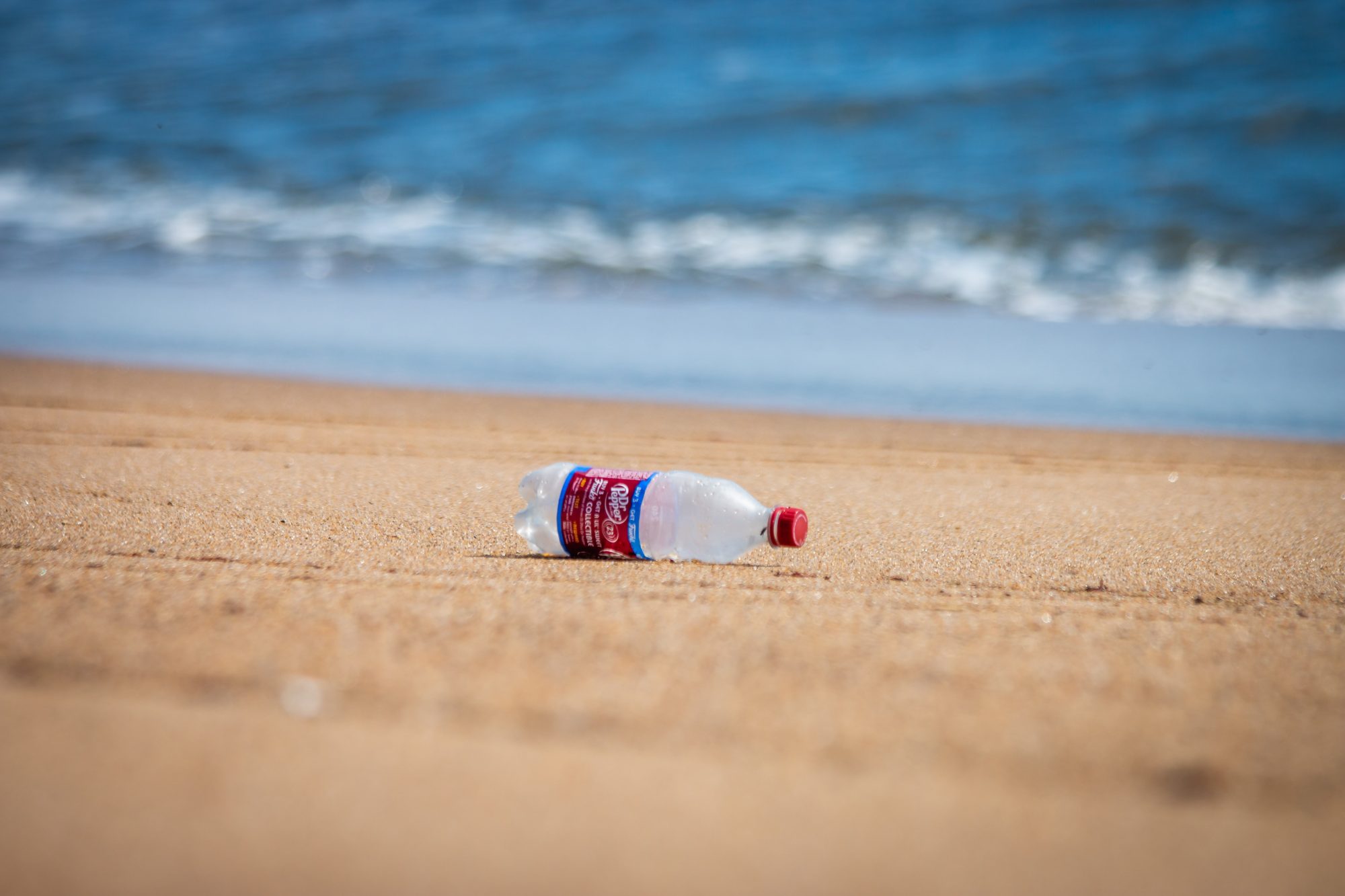Back in the early 1900s Leo Baekeland invented Bakelite, giving way into the first true synthetic plastic and what would become the greatest invention of the twentieth century (sorry Apple nerds). The “material of a thousand uses”, as it would soon come to be known, became popularized due to its ability to mold into virtually any shape, as well as its resistance to heat and durability. As civilization progressed, plastics were incorporated into everything from fashion to food containers to airplanes. However, science and time have shown there is a serious downside to all of this, now that we know how damaging plastic can be both for ourselves and the environment. But you didn’t already know that, right?… Right?
The Downside
As plastic began to make its way into every industry, it’s usage started to grow exponentially. It is now estimated that around 6.3 billion metric tons of plastic have ended in the trash. Think of all of those 40 water packs you bought at Costco. This is a huge problem because it can take anywhere from 400 to 1000 years to degrade in a landfill. Additionally, these plastics leach chemicals that interact with hormones in our bodies, potentially causing numerous health issues like heart disease and diabetes. Furthermore, broken down plastic fragments, called microplastics, end up scattered throughout the lands and oceans, poisoning wildlife as they consume them but are unable to digest them.

What can we do?
The good news is there are now various eco-friendly substitutes being used in order for us to ditch plastic for good. Numerous options such as glass, grape waste, liquid wood, polyesters like PCL, PHA, PLA, and even plastic additives are great alternatives to single use plastic. All of these substitutes have given rise to multiple products that can easily be purchased, leading to a more conscious and healthy life. Kind of like those beautiful, too-beautiful Lifestyle influencers you see on Youtube.
10 Non-Plastic Product Replacements
So let’s get to the point. We’ve compiled a list of 10 products we find essential and can surely help us scrap plastic out of our everyday life. Think of all of the compliments you would get from that one sustainable-crazy friend you have.
1. Glass or Stainless Steel Water Bottles
Plastic water bottles usually take about 450 years to degrade in the natural environment. Considering how we usually drink 8 glasses of water a day, it is important to be able to take it with us as we go about our day and glass or stainless steel water bottles are a great alternative.
2. Bamboo Toothbrushes
The CDC recommends that toothbrushes be changed every 3 to 4 months. This accounts for a lot of plastic toothbrushes ending up in landfills. Instead, Bamboo toothbrushes are entirely plant-based and are a great way to take care of our teeth and the environment.
3. Eco-Friendly Shampoo & Conditioner
Most of the bottles used in shampoo and conditioner products are made entirely of plastic. However, shampoo and conditioner bars have slowly become more accessible and popular. Made out of coconut oil, cocoa butter and essential oils, they’re a great substitute as it’s estimated that one bar accounts for five bottles of the liquid option. Additionally, lotion and face wash bars are also available.
4. Compostable Trash Bags
Most trash bags are made entirely of plastic and not a lot of attention is paid to this. Though it may be counter intuitive, most people usually use plastic trash bags for their recycling. A great alternative to this is compostable trash bags that can be made of sugar cane, plant starches and vegetable oils, and it usually takes only 84 days for them to break down completely.
5. Bamboo, Glass, Silicone, or Stainless Steel Straws
It is estimated that about 8.3 billion plastic straws can be found around the earth’s shores and usually end up severely hurting wildlife. Although many countries are trying to get rid of them altogether and some restaurants, cafes, and bars are switching to paper straws, another way to be a part of this mission is to purchase a reusable straw. There are now bamboo, glass, silicone, or stainless steel straws that can easily be purchased and incorporated into everyday life.
6. Compostable Food Bags or Containers
Most people usually use storage bags or containers that are made purely of plastic. Yet, compostable food bags and containers are a more conscious choice. Made of plants and compostable polymers, they’re 100% compostable.
7. Plastic-Free Gum
Gum is commonly made out of plastic and materials such as rubbers and waxes. These are both harmful to the environment and our bodies, as they are actually indigestible. As a result of this a lot of gum alternatives now exist. Biodegradable gum is plant-based and most are also aspartame free, meaning they are good for our bodies and our planet.
8. Reusable Dog Waste Bag or Compostable Dog Waste Sheets
It is estimated that in the U.S. alone about 43 million households own dogs. Since most dogs are usually walked at least twice a day and most people clean up after them with single use plastic bags, this may end up adding up to 86 million plastic trash bags a day. Luckily there are reusable dog waste bags now. These are made to be reused as they can be washed and dried quickly. Still, if that feels like too much work, there are compostable dog waste sheets that can be used. These paper sheets are biodegradable and eco-friendly.
9. Menstrual Cups
Every menstrual cycle, women usually have to change their pads or tampons every few hours for 2-7 days. The problem is that most of them are made out of 90% plastic. This is hugely damaging both to the body and the earth. Thankfully, menstrual cups are now largely popular and can hold up to three times as much liquid as a tampon.
10. Reusable Produce Bags
At grocery stores or supermarkets, fruits and vegetables are usually each put in single use plastic bags before being purchased. This means that one shopping trip can be a surefire use of about 10 to 15 plastic bags. Fortunately, there are now a lot of affordable mesh bags being made out of cotton and linen. They are a great way of making sure we buy all our fruits and veggies, while still being environmentally conscious.





